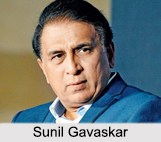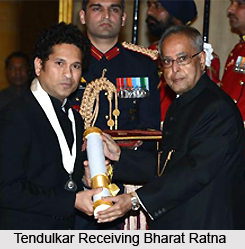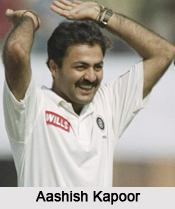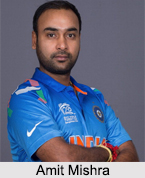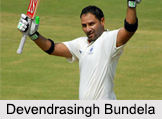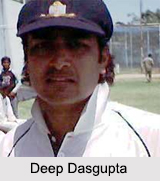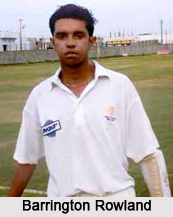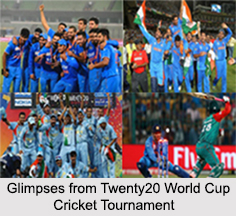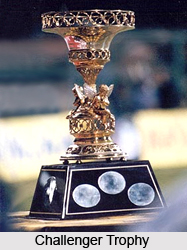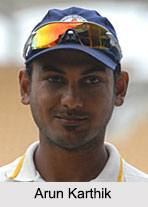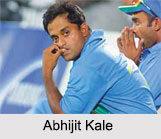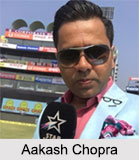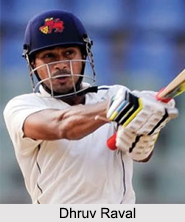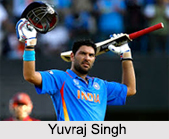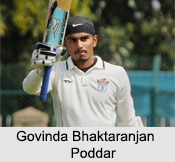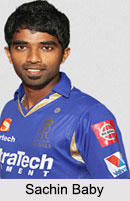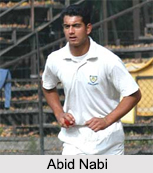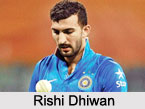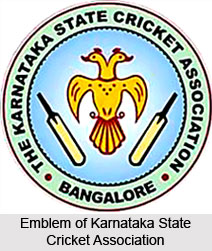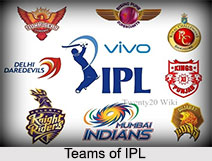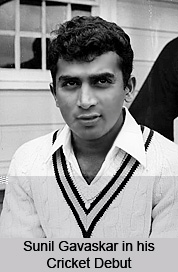 The cricket debut of Sunil Gavaskar saw the display of a most impressive performance by the twenty-one old player. He announced his arrival in international in his first series against the West Indies in the Caribbean in 1971. Though this was his first international debut, stellar performance by the young Gavaskar saw him plummeted to the ranks of international cricketers of high esteem. In the series that ensued, Gavaskar made a dream start, acquiring more runs, more hundreds and more appearances than anyone else in Test history until he retired.
The cricket debut of Sunil Gavaskar saw the display of a most impressive performance by the twenty-one old player. He announced his arrival in international in his first series against the West Indies in the Caribbean in 1971. Though this was his first international debut, stellar performance by the young Gavaskar saw him plummeted to the ranks of international cricketers of high esteem. In the series that ensued, Gavaskar made a dream start, acquiring more runs, more hundreds and more appearances than anyone else in Test history until he retired.
An unfortunate episode kept him out of the first test at Kingston. Before the tour commenced, on route to the Caribbean, Gavaskar had the middle finger of his left hand treated by a surgeon in New York. It so happens that this operation had been performed just in time as otherwise gangrene might have set in, and the world would have missed one of the greatest cricketing legends. This minor operation put Gavaskar out of action for about a fortnight, thereby missing the first test. However, India`s performance in the first test was quite splendid, and they were able to make the mighty West Indies follow on, for the first time in twenty three years. The match ended in a draw.
Gavaskar`s debut finally came at Port of Spain, Trinidad, in the Second test. Gavaskar`s debut was a most memorable one for both the player and the team. India surprised everyone, including their staunchest supporters, by recording a seven-wicket victory. Gavaskar made 65 and 67 not out. In the first innings, Gavaskar was 12 when Gary Sobers dropped a sitter as Gavaskar mistimed a back-foot drive off Holder. He now grew in stature and confidence and made 65 before he pulled a short ball from Noreiga for Clive Lloyd to hold a simple catch at square-leg. Gavaskar`s defiant knock, Dilip Sardesai`s superb century and Eknath Solkar`s half-century saw India gain a first innings lead of 138 runs after West Indies had been dismissed for just 214.
Surprisingly, and much against expectations, the West Indies failed again in their batting performance, and made only 261 in their second innings. India needed only 124 for victory. Gavaskar was 29 when he played uppishly but Noreiga failed to hold a simple return catch. He made the most of this chance. He stayed on to hit the winning boundary. It was India`s first win over West Indies.
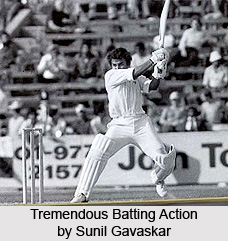 In the first innings of the third test at Georgetown, Guyana West Indies were restricted to a modest total of 363. Gavaskar was able to make his first ever test century after he was dropped twice before reaching 50. He stayed at the wicket for 265 minutes to score 116. His century helped India gain a slender 13-run lead. The West Indies declared their second innings at 307 for three. Gary Sobers remained unbeaten with 108 after surviving a bat-and-pad catch off Salim Durrani at eight and Charlie Davis slammed an unbeaten 125. India had only 90 minutes batting in which time Gavaskar remained unbeaten with 64 and the Test ended indecisively.
In the first innings of the third test at Georgetown, Guyana West Indies were restricted to a modest total of 363. Gavaskar was able to make his first ever test century after he was dropped twice before reaching 50. He stayed at the wicket for 265 minutes to score 116. His century helped India gain a slender 13-run lead. The West Indies declared their second innings at 307 for three. Gary Sobers remained unbeaten with 108 after surviving a bat-and-pad catch off Salim Durrani at eight and Charlie Davis slammed an unbeaten 125. India had only 90 minutes batting in which time Gavaskar remained unbeaten with 64 and the Test ended indecisively.
In the fourth Test at Bridgetown, Barbados, Sobers unbeaten 178 led the West Indies to 501 for five declared. Gavaskar lost his wicket at a mere one this time. He mistimed a hook and was caught by Holder off Dowe. It was Gavaskar`s only failure of the series. India however continued a persistent performance and rallied form 70 for six to 347 with Sardesai, slamming a classic 150. The last four wickets added 277. The West Indies went for the bowling and hit up 180 for six before Sobers declared leaving India to bat out the last day. Gavaskar ensured that India did do that, giving complete evidence of his batting prowess. He remained unbeaten with 117 as India finished on 221 for five.
The last test at Port of Spain also ended in a draw. Notwithstanding, Gavaskar`s performance remained commendable. It dwarfed everything else that had happened on the ground. He slammed 124 and 220 taking his aggregate in eight innings to 774. He scored one double, three centuries and three half centuries. He established a new record of the highest aggregate in a maiden series, beating 703 set by George Headley, the `Black Bradman`, against England in 1929-30. His superb performance made him the first player after Doug Walters to score a century and double century in the same match. He also became the first Indian to make four centuries in one Test series, the second Indian after Vijay Hazare to score two centuries in the same Test, and the third after Hazare and Polly Umrigar to score centuries in three consecutive innings. He was the first Indian to achieve an aggregate of more than 700 runs in a series, and this 774 runs at 154.80 remains the most runs scored in a debut series by any batsman.
The debut performance of Sunil Gavaskar was thus a dream performance. He put up a superb display of his batting prowess, earning a name for himself at the very outset. His debut match marked a permanent place for him in the field of international cricket. It was truly Gavaskar`s series to claim.
